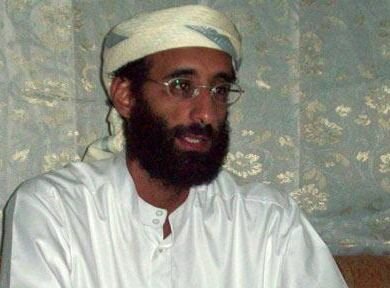Assassination of US Muslim cleric illegal immoral and unwise
Politics — By Bill Quigley on May 11, 2010 at 05:17Agents of the United States are openly trying to assassinate Muslim cleric Anwar al-Awlaki, a US citizen, while he is in hiding in Yemen. Despite what the apologists for assassination argue this is illegal, immoral and unwise.
Assassinating Awlaki in the US would be murder, a capital crime, punishable by life in prison or even the death penalty. Morally, few would argue that agents of the FBI or the CIA could murder the cleric in the US. If it is illegal and immoral to kill a Muslim cleric in the US why would it be legal, moral or wise to do so in Yemen?
The Imam, who lived in the US for more than two decades, is accused of using his powerful speaking and teaching skills on behalf of terrorism. Authorities say he was in e-mail contact with the Army Major arrested for killing 13 people at Fort Hood, Texas. He is loosely linked to the Nigerian Christmas bomber. The Times Square SUV bomber is reported to have listened to the cleric’s online lectures.
Assassination has been illegal since 1976.
In 1976 U.S. President Gerald Ford issued Executive Order 11905, Section 5(g) states “No employee of the United States Government shall engage in, or conspire to engage in, political assassination.” President Reagan followed up to make the ban clearer in Executive Order 12333. Section 2.11 of that Order states “No person employed by or acting on behalf of the United States Government shall engage in, or conspire to engage in, assassination.” Section 2.12 further says “Indirect participation. No agency of the Intelligence Community shall participate in or request any person to undertake activities forbidden by this Order.”
The reason for the ban on assassinations was that the CIA was involved in attempts to assassinate national leaders opposed by the US. Among others, US forces sought to kill Fidel Castro of Cuba, Patrice Lumumba of the Congo, Rafael Trujillo of the Dominican Republic, and Ngo Dinh Diem of South Vietnam.
Since 2001, the US has returned to the assassination business. Along with its many other illegal actions, the Bush-Cheney administration revived the use of murder to eliminate political opponents across the world.
How can murder be allowed? The Congressional Research Service published a review of the ban on assassinations in 2002. The review weakly suggested “it might be sufficient” to interpret the War Power resolutions passed by Congress after September 11, 2001 as legal authority to allow assassinations outside the U.S. However, Congress authorized no war against Yemen, no military strikes against anyone in Yemen, nor authorized any assassination of anyone anywhere.
Defenders of assassination argue that murder is a legal part of the US strategy of “pre-emptive self-defense” authorized by Congress after 9-11. Under this argument, the US government is allowed to decide who represents a possible threat to our nation anywhere anytime and then exterminate them before they can damage the US. They also argue that the decision to target someone for assassination is legally secret. Because any threat to the US triggers these powers, under this line of argument, the US is in a permanent war state and has these powers forever.
This is perfect for the apologists for assassination because the government alone is thus investigator, prosecutor, judge, jury and executioner. The public will never know because the government can do all this in secret. And since the war against terrorism is permanent, the government can murder people forever.
Thus the last traces of the rule of law evaporate. There is no transparency because no one gets to know. There is no accountability because the executive has unchecked authority.
Does anyone think the US would approve other nations acting like this? Would it be acceptable or even arguably legal for Iran or China or Israel or France to secretly decide who their enemies are and then execute them in the US if they find them here?
Apologists for assassination ease the way for the US to kill anyone anywhere anytime. What is then the logical next step in this argument? If we can secretly kill US citizens who we decide are our enemies outside the US, why not inside the US? And why not keep that secret as well?
The US cannot be allowed to continue to exercise secret authority to murder people. If the Bush administration was doing this as openly as the Obama administration is, people would be vocal about its illegality, immorality and its lack of wisdom.
Murdering anyone in the US is a criminal act that is prosecuted regularly in courts across this country. Why should secret cold-blooded murder by government forces outside the U.S. be treated any differently?
Tags: Assassination, Cia, FBI, george w. bush, Human Rights, Imam, Murder, Muslim, obama administration, Politics News, YemenAuthor: Bill Quigley (26 Articles)

Bill Quigley currently on the ground in Haiti recording a diary for Race-Talk. He is the Legal Director for the Center for Constitutional Rights, a national legal and educational organization dedicated to advancing and defending the rights guaranteed by the United States Constitution and the Universal Declaration of Human Rights. Bill joined CCR on sabbatical from his position as law professor and Director of the Law Clinic and the Gillis Long Poverty Law Center at Loyola University New Orleans. He has been an active public interest lawyer since 1977. He has served as counsel with a wide range of public interest organizations on issues including Katrina social justice issues, public housing, voting rights, death penalty, living wage, civil liberties, educational reform, constitutional rights and civil disobedience. Bill has litigated numerous cases with the NAACP Legal Defense and Educational Fund, Inc., the Advancement Project, and with the ACLU of Louisiana, for which he served as General Counsel for over 15 years. Bill received the 2006 Camille Gravel Civil Pro Bono Award from the Federal Bar Association New Orleans Chapter. Bill received the 2006 Stanford Law School National Public Service Award and the 2006 National Lawyers Guild Ernie Goodman award. He has also been an active volunteer lawyer with School of the Americas Watch and the Institute for Justice and Democracy in Haiti. Bill is the author of Ending Poverty As We Know It: Guaranteeing A Right to A Job At A Living Wage (2003) and Storms Still Raging: Katrina, New Orleans and Social Justice (2008). In 2003, he was named the Pope Paul VI National Teacher of Peace by Pax Christi USA and is the recipient of the 2004 SALT Teaching Award presented by the Society of American Law Teachers.



 Share This
Share This Tweet This
Tweet This Digg This
Digg This Save to delicious
Save to delicious Stumble it
Stumble it





 Pursuing racial justice: A primer for young people
Pursuing racial justice: A primer for young people Opening the dialogue on America’s dirty secret
Opening the dialogue on America’s dirty secret Slavery in the home and out in the fields
Slavery in the home and out in the fields New UC admissions policy would hurt African Americans, Asians
New UC admissions policy would hurt African Americans, Asians







